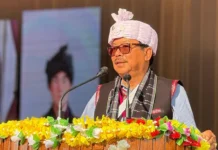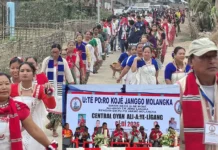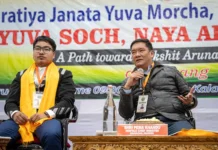NEW DELHI, 12 Aug: Concerned over non-implementation of a 2021 central law on allied professions in the field of healthcare, the Supreme Court on Monday asked the Centre, states and the union territories (UTs) to ensure compliance with the Act by 12 October or be ready to face coercive action.
The top court, which had issued notices to the Centre, all state governments and UTs on a PIL in September last year, was irked over non-implementation of the National Commission
for Allied and Healthcare Professions (NCAHP) Act, 2021.
The NCAHP Act provides for “regulation and maintenance of standards of education and services by allied and healthcare professionals, assessment of institutions, and maintenance of a central register and a state register” of allied healthcare professions in the country.
The law mandates setting up of regulatory bodies and state-level councils for all allied healthcare professions which are not governed and covered by the National Medical Commission, the Dental Council of India, and other regulatory bodies till 2021.
The Act includes healthcare professions and professionals of medical laboratory and life sciences, trauma, burn care, and surgical/anaesthesia-related technology, physiotherapy, etc.
“We direct the union and states to take necessary steps to implement the Act within two months; (2) The health ministry shall within two weeks convene online meeting of all the secretaries of state for health and family welfare to lay down roadmap to implement the Act,” ordered a bench comprising Chief Justice DY Chandrachud and Justices JB Pardiwala and Manoj Misra.
Warning that failure to implement the provisions of the Act may lead to coercive measures, the bench said that the “infrastructure is set up by all the states and UTs and the provisions are to be made functional in letter and spirit.”
It directed all states and UTs to submit compliance reports with the secretary of the union health & family welfare ministry in a tabular format before the next date of hearing.
The bench asked Additional Solicitor General Vikramjit Banerjee, representing the central ministry, to file the reply to the PIL within two weeks.
The bench was hearing a PIL of the Joint Forum of Medical Technologists of India.
At the outset, the bench said that the law came into being on 25 May, 2021 and no response was filed by the Centre, despite the fact that the notice was issued to it in September last year.
“Out of all states and UTs, only 14 states have constituted state councils under the Act. It has been urged that above state councils are not functional either,” the bench noted.
The proliferation of institutes dealing with these subjects is “a serious matter of concern” and the parliamentary legislation was to provide a legislative framework to prevent such proliferation.
“Even after three years, the union and the states have failed to discharge their responsibility,” the CJI said,and directed the Centre to conduct an online meeting with the state health secretaries to finalise the roadmap for implementing the law.
“We direct the union and the states shall, on or before 12 October, 2024, take steps to implement the provisions… the secretary of the health and family welfare ministry shall within two weeks convene online meeting of all the state secretaries in health ministries and devise a roadmap consistent with the Act,” the bench said.
The PIL had sought implementation of the NCAHP Act, 2021, as well as establishment of professional councils and state allied and healthcare councils, as mandated under the Act.
The PIL said that allied health professionals include individuals involved with the delivery of health or healthcare-related services with qualification and competence in diagnostic, therapeutic, curative, preventive and/or rehabilitative interventions.
The plea had said that historically, India has leaned towards a ‘doctor-centred’ healthcare delivery, with very little attention to specialisation in allied health sciences. (PTI)




